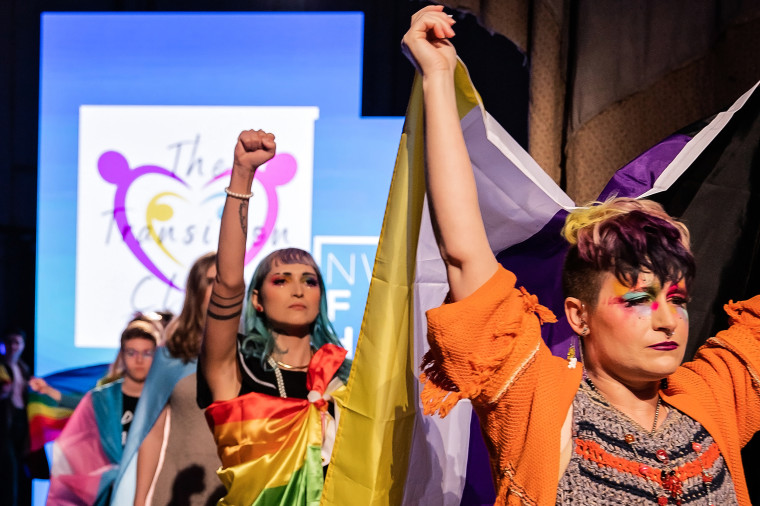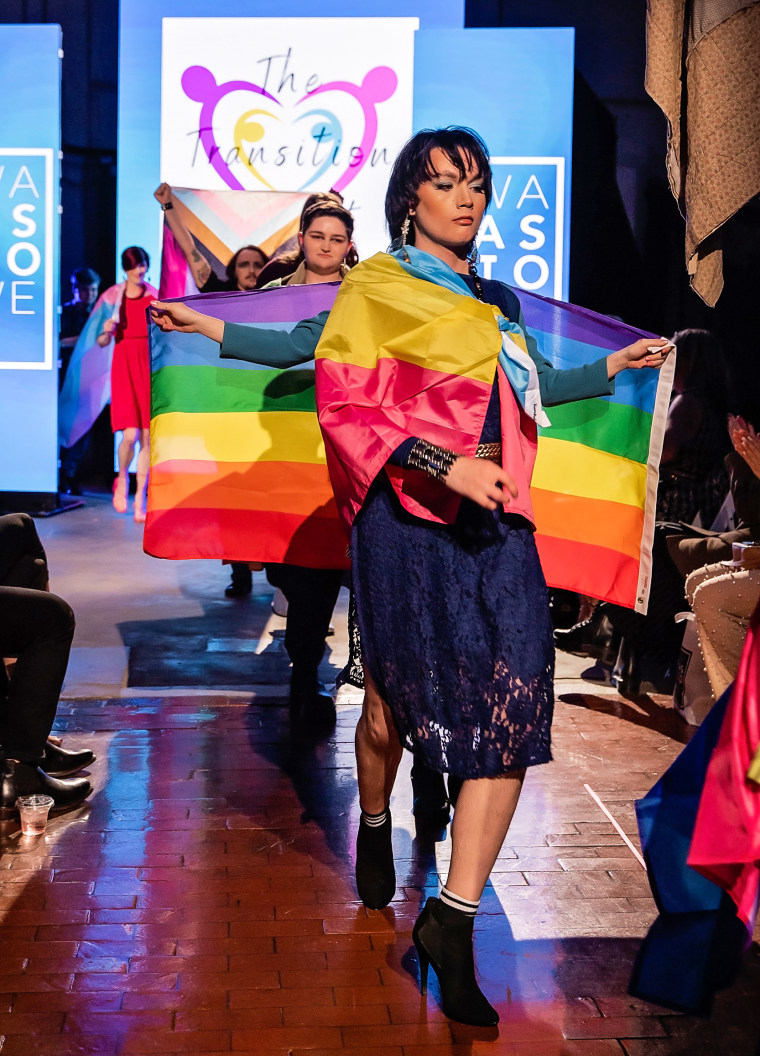For the last decade, transgender activist Lisa Stuart has dedicated her life to raising the visibility of transgender and nonbinary Arkansans.
“What a lot of people don’t realize is that there’s a lot more of us in the community than you’d think,” she said. “There’s kind of this narrative that you’ll never find a trans person here, that it’s so rare.”
Last year, the state’s trans community finally gained the attention of the nation. But it wasn’t what Stuart had hoped for.
In April, Arkansas made international headlines after becoming the first of two U.S. states to ban gender-affirming care for transgender minors. Aside from the health care law — which was temporarily blocked by a federal judge in July — a law signed by the governor last March that limits trans participation in school sports also drew widespread attention to the state’s trans population.

As trans Arkansans wait to see whether the courts will let the health care law stand, Stuart is spotlighting the trans community on her own terms. To open Northwest Arkansas Fashion Week on Thursday, she helped put together a fashion show, which she described as a “vehicle of change,” that featured 13 trans models.
“We really want to promote this awareness and this visibility that trans people are a part of the community, that we are everywhere, and that we are in every aspect of society, any hobby, any occupation,” said Stuart, who was one of the 13 models walking in the event. “The more people begin to understand what trans is, the more they will begin to see the problems with these pieces of legislation.”
Clothes from the fashion show — which was organized by the arts nonprofit Interform — were all selected by The Transition Closet, an Arkansas-based nonprofit that offers free clothing for the LGBTQ community. The group also received 10 percent of the ticket sale proceeds.
Amare Roush started The Transition Closet in June in response to the legislation that was passed in the state. Roush, who goes by gender-neutral pronouns, said they wanted to give their community a “safe place” to find clothes and enjoy fashion.
“It’s the first thing that people see on a job interview; it’s the first thing that people see on a first date,” Roush said. “I wanted my fellow siblings in the community to be able to have that closet there so they could get those clothes, so they could put that first foot forward and be able to be their authentic selves.
“Luckily, we’re able to do our part to make it a little less scary for the community, because that’s what we truly need right now,” they added, referring to the legislation.

Across the country, conservative state legislators have filed more than 330 anti-LGBTQ bills within the last two years, according to Freedom for All Americans, a nonprofit group which advocates for LGBTQ nondiscrimination protections nationwide. And the majority of those bills — at least 225 of them — targeted trans Americans specifically, the group found.
The majority of the measures include legislation similar to new laws in Arkansas: bills that block trans kids from competing on school sports teams that align with their gender identity and those that restrict their access to gender-affirming care.
Since the start of 2021, 11 states have enacted such measures, according to tallies from the American Civil Liberties Union and Human Rights Campaign, an advocacy group. Yet, only in Tennessee and Arkansas have both types of legislation been enacted into law, with Arkansas beating Tennessee to the punch.
“It felt like Arkansas kind of made a very loud statement with the policies they tried to push through and the ones that it didn’t push through,” said Joel Manning, president of the board of directors for the Arkansas-based trans advocacy group Transgender Equality Network.

A federal judge temporarily blocked the Arkansas law in July after the ACLU challenged it in court on behalf of trans youths and their families. But Manning said that regardless, clinics in Arkansas that provide gender-affirming care have started to close or are no longer offering those services.
“The legality of the situation doesn’t necessarily dictate how people respond to it,” he said. “We’re still getting calls from people who are afraid, who don’t know what’s going to happen, and they feel like they need to prepare ahead of time for if things won’t go our way.”
He added, “It’s very destabilizing, and it’s sad to see people already essentially acting like it’s in effect just out of fear.”
Phoenix May, 14, is a patient of one of those Arkansan trans clinics that is closing down to protect itself from potential legal liability. Once his clinic — the Gender Spectrum Clinic in Little Rock — closes, he said his family will have to take him outside the state to receive transition-related care.
“All of these good things were happening at once, and then all of the sudden this legislation passed, and it just crashed down. It was like, ‘Oh, this is just another thing we have to fight as well,’” he said.
May said he hoped that by walking in the fashion show on Thursday night, he could unite and inspire other trans kids as they wait for a decision on the health care bill.
“It’s good to be able to be out there and show people that, ‘You’re not alone.’ We’re out there modeling and having fun and can do that too,” he said. “We just have to find bright spots and be able to push through.”

